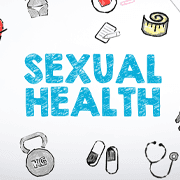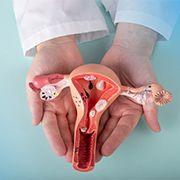A Wholehearted Overview of Infant and Toddler Health
In This Article
A Wholehearted Overview of Infant and Toddler Health
Prathibha
Updated on February 07, 2025
Medically verified by Dr. Arya
Fact checked by Dr. Fazeela

Wellness
10 mints
1. Why Infant and Toddler Health Matters
The first 1,000 days of life, spanning conception to a child’s second birthday, are critical for brain development, immune system function, and long-term health. Early care and preventive measures during these years can significantly influence a child's overall well-being and reduce the risks of chronic illnesses in adulthood.
2. Nutrition: Building Blocks of Early Health
- Breastfeeding: Rich in antibodies and nutrients, breast milk supports immunity and growth. Experts recommend exclusive breastfeeding for the first six months.
- Formula Feeding: A vital alternative when breastfeeding isn't feasible. Ensure formula is prepared hygienically and tailored to the baby’s age and needs.
- Start solids around six months, beginning with iron-fortified cereals, pureed fruits, and vegetables.
Gradually expand the diet to include grains, proteins, and dairy products by 12 months. Avoid choking hazards like nuts, whole grapes, and large pieces of food.
3. Common Health Concerns in Infants and Toddlers
- Colic is common in infants under 3 months. Swaddling, rocking, and white noise may provide relief.
- Encourage good sleep hygiene with consistent bedtime routines.
- Due to their developing immune systems, infants are prone to colds and ear infections. To reduce these risks, maintain vaccinations and practice good hygiene.
- Introduce allergenic foods gradually, monitoring for reactions. Consult a pediatrician if symptoms like rashes, vomiting, or diarrhea occur.
 10mint
10mintSexual Health Matters: How To Maintain Your Sexual Health ?
 10mint
10mintYour Guide to Sexual Health Screening and Preventive Measures
 10 mints
10 mintsSTDs in Women: Comprehensive Guide on Symptoms and Treatments
Get a Callback Now
4. Emotional and Social Development
- Responsive caregiving fosters emotional security. Engage in eye contact, cuddling, and talking to build trust and attachment.
- Encourage interactions with other children to develop social skills. Playgroups and daycare can support this aspect of growth.
5. Preventive Health Practices
- Vaccines protect against severe diseases such as measles, mumps, and whooping cough. Follow the recommended immunization schedule.
- Routine pediatric visits ensure timely tracking of growth milestones, vaccinations, and developmental progress.
- Clean gums with a soft cloth before teeth erupt. Begin brushing with a soft toothbrush and fluoride toothpaste once the first tooth appears.
6. Promoting Physical Activity
- Tummy Time: Strengthens neck and shoulder muscles in infants.
- Active Play: Toddlers benefit from unstructured play and activities like running, climbing, and dancing.
Early years set the stage for lifelong health and development.
Prioritize balanced nutrition, emotional bonding, and preventive care.
Address common health issues with professional guidance, fostering resilience in children.
Engage children in age-appropriate physical and social activities to support holistic growth. **Sources**
Source Links
American Academy of Pediatrics - Infant and Toddler Health
World Health Organization - Nutrition for Infants
Mayo Clinic - Infant and toddler health

